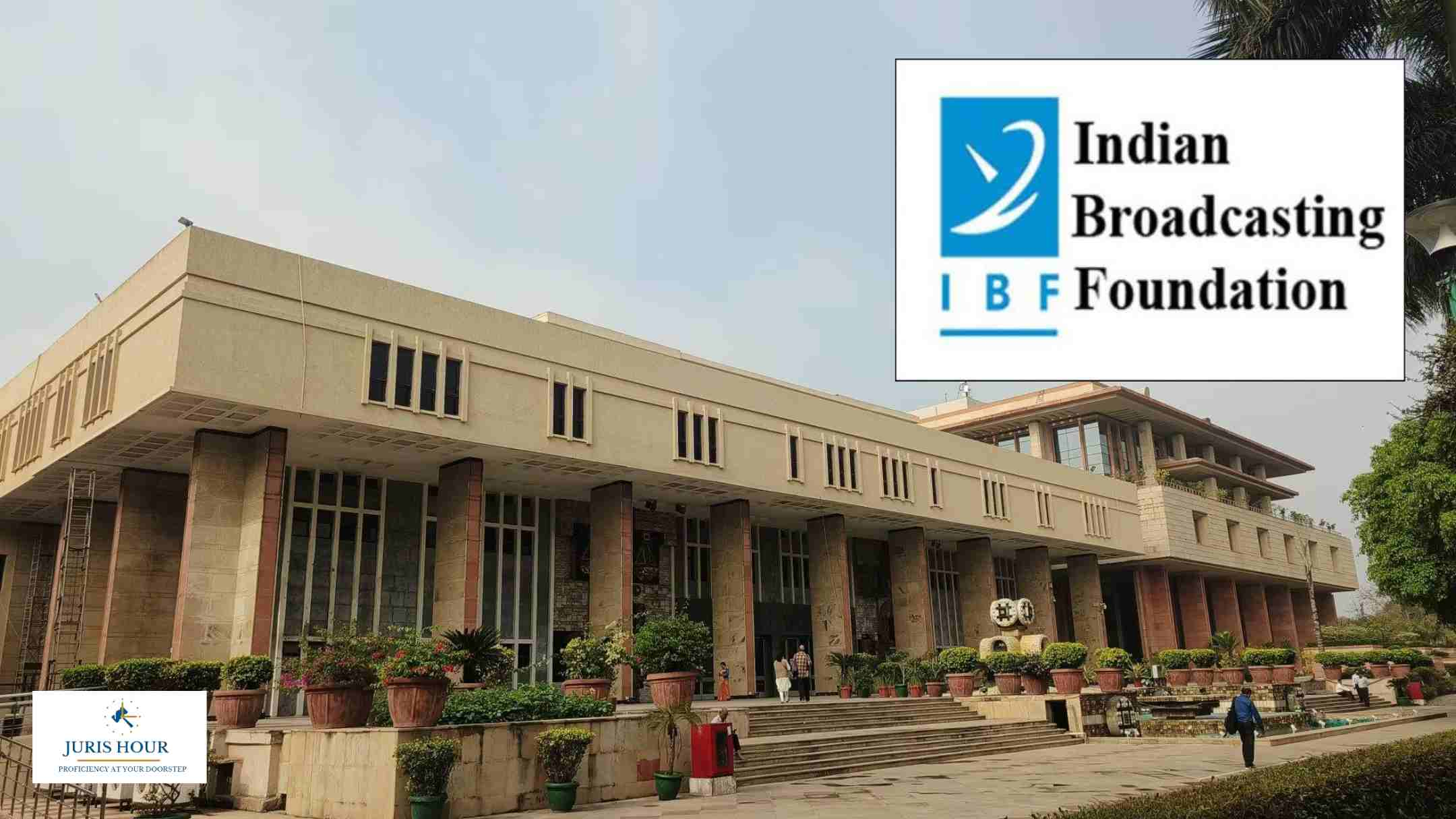Fund Deployment By Indian Broadcasting Foundation In BARC Is Statutory Obligation And Not 'Investment': Delhi High Court Allows Income Tax Exemption

Income Tax Exemption Allowable On Fund Deployment By Indian Broadcasting Foundation
The Delhi High Court while allowing the Income Tax Exemption to Indian Broadcasting Foundation has held that fund deployment in Broadcast Audience Research Council (BARC) is statutory obligation and not 'investment'.
The bench of Justice Vibhu Bakhru and Dr. Justice Swarana Kanta Sharma has observed that the application of funds by the Assessee in BARC does not qualify as ‘investment’ under Section 11(5) read with Section 13(1)(d) of the Income Tax Act, inasmuch as the deployment was not intended to yield income, profit, or return, but was made pursuant to a statutory and regulatory obligation to further the Assessee’s charitable objectives.
The respondent/assessee, the Indian Broadcasting Foundation was incorporated on 27.09.1999 as a not-for-profit company under Section 25 of the Companies Act, 1956. The Assessee was also registered under Section 12A of the Act vide order dated 10.01.2001.
The Assessee is an association of broadcasters formed to protect the interests of various stakeholders and related entities in the field of television broadcasting, including the television viewing audience. Its objectives include spreading awareness about the latest developments in the television industry, disseminating knowledge among its members, and supporting, protecting, and defining the rights of its members.
The Assessee filed its return of income declaring Nil income on 29.09.2014 for the AY 2014-15, claiming exemption under Sections 11 and 12 of the Act. The case was subsequently selected for scrutiny assessment under the Computer-Assisted Scrutiny Selection (CASS).
A notice under Section 143(2) of the Income Tax Act was issued and served upon the Assessee. A notice under Section 142(1) of the Act was issued, along with a questionnaire, requiring the Assessee to furnish information and documents in support of its claims.
In response, Sh. Rajat Jain and Sh. Siddharth Bhargava, Chartered Accountants and Authorized Representatives (ARs) of the Assessee, appeared before the Assessing Officer (AO) from time to time and submitted the requisite information/ documents.
During the assessment proceedings, upon perusal of the records and past year additions, the AO noticed certain investments made by the Assessee. From Note No. 9 of the balance sheet for the AY under consideration, it was observed that the Assessee had made an investment of ₹15,00,000/- in Equity Shares, numbering 1,50,000 of ₹10/- each, in an entity named Broadcast Audience Research Council (BARC). The AO noted that BARC is a 100% subsidiary of the Assessee. Further, as per Note No. 13 of the balance sheet, it was observed that the Assessee had made an investment of ₹2,85,00,000/- in Share Application Money.
The AO took a view that these investments were not in accordance with the forms or modes prescribed under Section 11(5) of the Income Tax Act. Accordingly, the Assessee was issued a show cause notice, asking it to explain why the investments made in contravention of Section 11(5) of the Income Tax Act should not be considered a violation within the meaning of Section 13(1)(d) of the Act.
The Assessee was asked to justify why, in view of the violation of Section 13(1)(d), the benefits of Sections 11 and 12 of the Income Tax Act should not be withdrawn and why the entire surplus of Rs. 5,34,24,581 should not be treated as the Assessee’s taxable income for the relevant AY.
The Assessee had deployed Rs. 99,990 towards the equity share capital of BARC in FY 2010-11. A further amount was deployed for the same purpose in FY 2010-11, and equity shares were issued by BARC to the Assessee in respect of the said amount in FY 2011-12.
As on 31.03.2012, the Assessee held total shares of Rs. 15,00,000 in BARC. The share application money of Rs. 45,00,000 and Rs. 2,40,00,000 were deployed by the Assessee with BARC in the FY 2012-13 and FY 2013-14 respectively for issuance of shares. These amounts are reflected as ‘share application money’ in the Assessee’s books of accounts. These amounts of Rs. 45,00,000 and Rs. 2,40,00,000 were later refunded to the Assessee in the FY 2015-16.
The ITATfound that the deployment of funds in BARC was not for earning income or profit but for achieving the Assessee’s key objectives, noting that BARC, as a company registered under Section 25 of the Companies Act, was prohibited from distributing dividends or profits to its shareholders, and in the event of liquidation, any surplus would be transferred to another company registered under Section 25 of the Companies Act with similar objectives.
The court held that the essence of ‘investment’ lies in the intention and the capacity of the expenditure to yield income, profit, or return. The consistent judicial view is that mere deployment of funds does not amount to an investment unless it is aimed at earning income or return.
The court held that there was no violation of Section 11(5) read with Section 13(1)(d) of the Act committed by the Assessee. Consequently, the decision of the CIT(A), upheld by the ITAT, to allow the exemption to the Assessee under Sections 11 and 12 of the Income Tax Act, is also affirmed.
Case Details
Case Title: CIT(E) versus Indian Broadcasting Foundation
Case No.: ITA 469/2023
Date: 20.03.2025
Counsel For Appellant: Mr. Abhishek Maratha, SSC with Mr. Apoorv Agarwal, Mr. Parth Semwal, JSCs and with Ms. Nupur Sharma, Mr. Gaurav Singh, Mr. Bhanukaran Singh Jodha, Ms. Muskan Goel, Mr. Himanshu Gaur, Mr. Kamakshraj Singh and Mr. Yamit Jetley, Advocates
Counsel For Respondent: Ajay Vohra, Sr. Advocate with Ms. Ishita Farsaiya, Mr. Sparsh Bhargava, Mr. Apoorv Shukla, Mr. Jaidev Prasada and Ms. Vanshika Taneja, Advocates

